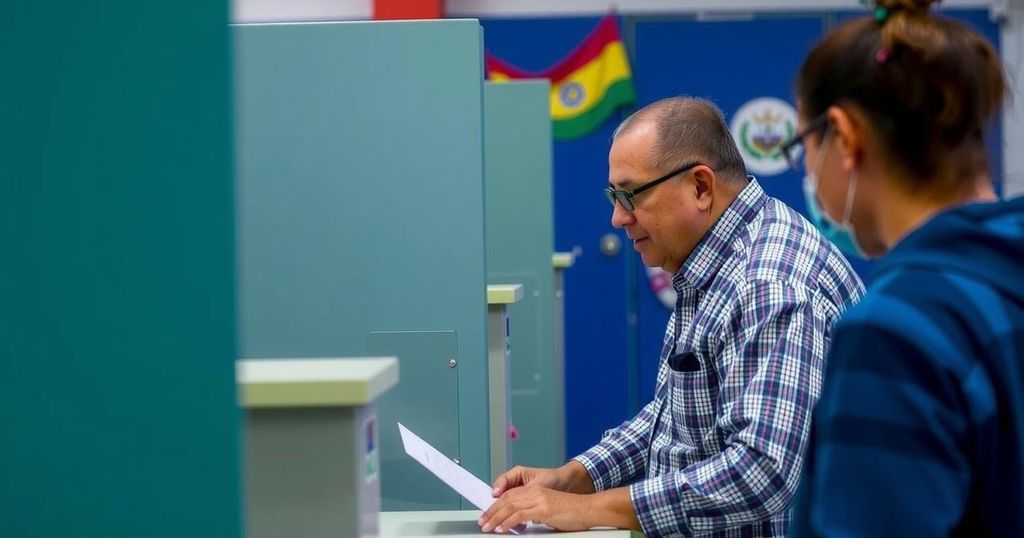Uruguay is set to hold a general election featuring centrist candidates Álvaro Delgado of the ruling National Party and Yamandú Orsi from the Frente Amplio coalition. The country is recognized for its political stability and democratic values, focusing on issues like child poverty and security. Voter turnout is expected to be high, reflecting an engaged electorate. Key proposals on the ballot include major social security reforms and policing measures, highlighting pressing social discussions within the electorate.
In the small, politically stable South American nation of Uruguay, voters will head to the polls on Sunday to participate in a general election that features a contest between two centrist candidates. The current political climate is characterized by civility, contrasting sharply with the dramatic political climates seen in neighboring countries such as Argentina and Brazil. Uruguay has a population of 3.4 million people and is recognized as a strong democracy that has maintained a broad consensus among its political parties. The election is primarily a face-off between Álvaro Delgado of the ruling National Party, who is a congressman and the former chief of staff to current President Luis Lacalle Pou, and Yamandú Orsi, a former mayor and candidate from the center-left Frente Amplio coalition. With President Lacalle Pou ineligible to seek a second term due to constitutional limits, Delgado is seeking to continue the policies of his predecessor. Delgado enjoys the support of a government that has managed to achieve steady economic growth, evidenced by his 50% approval rating. Meanwhile, Orsi, who has a background as a history teacher and is known for his humble approach, is highlighted by his lead in the polls—although not enough to avoid a potential runoff scheduled for November 24. The election campaign has focused on critical issues such as child poverty and security, particularly as rising crime rates have caused concern among the population, despite Uruguay being one of the safest countries in the region. The sentiments expressed by political analysts reflect a general satisfaction among Uruguayans with their current governance, exemplified by remarks such as, “In a way, Uruguay has been boring, but boring in this sense is very good,” indicating that stability is preferred over chaos. Additional matters of import during the election include a constitutional referendum on social security reform that aims to lower retirement ages and enhance benefits, as well as a proposal for nighttime police raids, both of which show deep societal implications. Voter turnout in 2019 was impressively high at over 90%, and overall electoral participation remains obligatory for presidential and congressional elections.
The political framework in Uruguay is marked by a long-standing commitment to democratic processes and stability. This election emerges amid a backdrop where the populace generally favors business-friendly policies and progressive reforms introduced in the past two decades when the Frente Amplio coalition held power. The need for consensus on pressing social issues, including wealth distribution and crime prevention, is particularly salient in today’s campaign. Considering Latin America’s often tumultuous political landscape, Uruguay stands out due to its adherence to peaceful electoral traditions and strong civic engagement.
As Uruguay approaches its pivotal election, the nation remains a beacon of stability amid regional turbulence. The contest between Álvaro Delgado and Yamandú Orsi signifies not just a choice of leadership but also a reflection on social issues that resonate with the electorate. With a strong emphasis on continued economic growth and addressing security concerns, voters will play a crucial role in determining the future direction of their democracy. The accompanying referendums on social security reform also highlight evolving discussions about fairness and resource distribution in contemporary Uruguay.
Original Source: apnews.com







